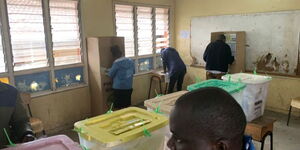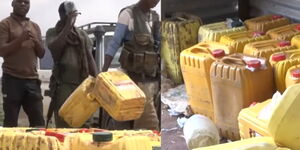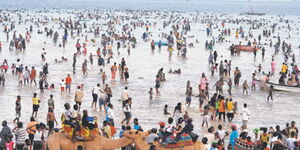Cage fish farmers in Lake victoria incurred losses amounting to Ksh927 million in a span of four months, between September and December 2022.
A report by a seventeen-member task force led by the Principal Secretary for fisheries and blue economy Betsy Njagi stated that the losses incurred were a result of discrepancies in the sector.
The task force was investigating the cause of the death of fish in Lake Victoria across ten beaches in Homabay and Kisumu.
Fish in 747 cages spread across the beaches died due to suffocation following a natural process in the lake, that the report termed as spotted upwelling.
"The cage aquaculture in Lake Victoria was seriously affected by irregularities, which contributed to the million-dollar loss," the report stated in part.
Some of the biggest losers were firms in Kisumu as well as individual businessmen who incurred losses in tens of millions.
Owing to the report by the task force, the government plans to set up a national standing committee to advise on matters of cage fish farming in the country as a way of strengthening the blue economy sub-sector.
The task force recommended the publication of cage culture guidelines by the end of the year to tame the mushrooming of cages in the lake.
This is after it was noted that only 14 out of the 747 cages on the beaches, had the appropriate licensing from the National Environment Management Authority (NEMA) to run the business.
“The businessmen did not have the required documents from the Kenya Fisheries Service and the National Lands Commission, necessary for persons practicing cage culture,” the report stated.
Additionally, the government was advised to develop necessary compensation mechanisms for farmers and to put up plans to sensitize them on the best practices for managing and setting up cage farms.
The task force noted that it was also important to map and document all cages in Lake Victoria as a way of having important information on the businesses on the beaches of Lake Victoria.
Elsewhere, the government approved the disbursement of a Ksh2.5 billion grant to the Kabonyo Kanyagwal fisheries and aquaculture research center in Kisumu in November 2022.
The research center was expected to produce 7 million fingerlings annually.












